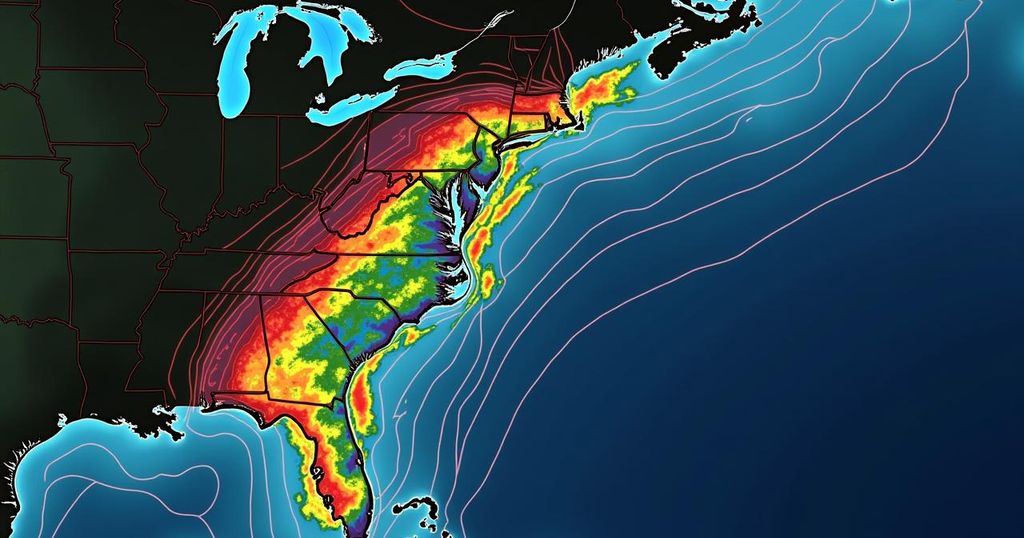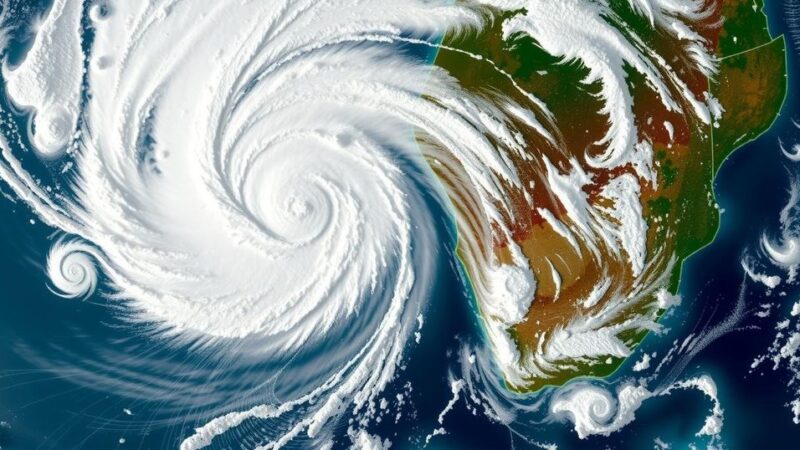Hurricane Helene caused substantial flooding, road closures, and power outages across the Southeastern United States, affecting regions such as Georgia, North Carolina, and Virginia. Researcher Majid Shafiee-Jood explains how the moisture from hurricanes leads to flash floods. Historical context reveals similar patterns from past hurricanes, and a new database aims to improve understanding of public response to evacuation orders during such emergencies.
This month, the Southeastern United States experienced significant disruption due to the impact of Hurricane Helene, which resulted in widespread road closures, power outages, and catastrophic flooding in regions such as Georgia, North Carolina, and Virginia. Majid Shafiee-Jood, a research assistant professor specializing in civil and environmental engineering at the University of Virginia, provided insights into the phenomena occurring as a result of these storms. Hurricanes are recognized as rapidly rotating storm systems characterized by robust winds and a spiral arrangement of thunderstorms capable of holding substantial moisture. This moisture often leads to heavy rainfall, which can result in flash floods, particularly in urban areas where the ground is less permeable, and in mountainous regions where saturated soil can lead to sudden floods, often accompanied by mudslides and landslides. Such events have been observed recently in parts of western North Carolina and Virginia, where intense rainfall within a brief time frame has led to severe flooding. Shafiee-Jood elaborated on the nature of spinoff storms from southern hurricanes, stating, “Flash floods happen because you have significant rainfall in one region in a short period of time.” These flood events can occur in various terrains, exacerbated by existing conditions such as urban development or steep slopes in mountainous regions. While the events surrounding Hurricane Helene have had devastating consequences, such occurrences are not unprecedented. Shafiee-Jood references similar tensions after Hurricane Michael in 2018, where heavy rainfall led to near overtopping of a local dam in Halifax County. In an effort to comprehensively understand response behaviors during such hazardous weather events, Shafiee-Jood and his colleagues established the first-ever hurricane evacuation order database. This database tracks evacuation orders issued by different counties and their effectiveness in prompting evacuation responses among the population. The researchers focus on how communities, such as those affected by Hurricane Helene, react to flash flood watches and emergency notifications, posing the critical question of how these messages are interpreted and acted upon in high-stakes scenarios.
The article discusses the cascading effects of hurricanes on regions farther north, particularly in light of Hurricane Helene’s impact on the Southeastern United States. It examines the scientific principles behind hurricanes and flash floods, how urban and mountainous terrains respond to heavy rainfall, and the historical context of similar events. Additionally, it underscores the importance of effective communication and decision-making during evacuations in response to hazardous weather alerts, emphasizing the researchers’ goal of understanding public response to evacuation orders through their innovative database.
In conclusion, Hurricane Helene has not only disrupted normalcy in the Southeastern United States through power outages and flooding but has also drawn attention to the significant effects hurricanes can have beyond their immediate area. The correlation between southern hurricanes and subsequent weather events in states like Virginia and North Carolina emphasizes the necessity for proper response strategies and public awareness regarding evacuation orders. The establishment of a comprehensive evacuation order database offers vital insights into enhancing community preparedness for future storm events.
Original Source: news.virginia.edu







